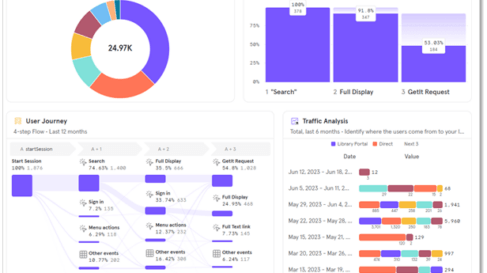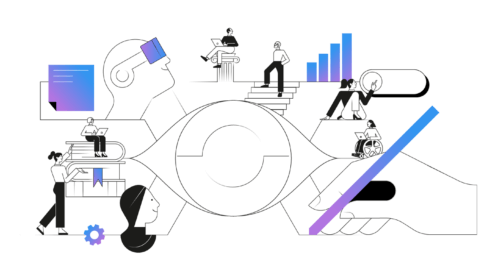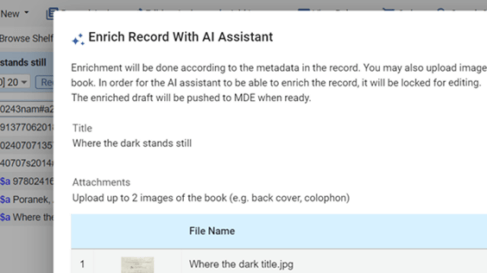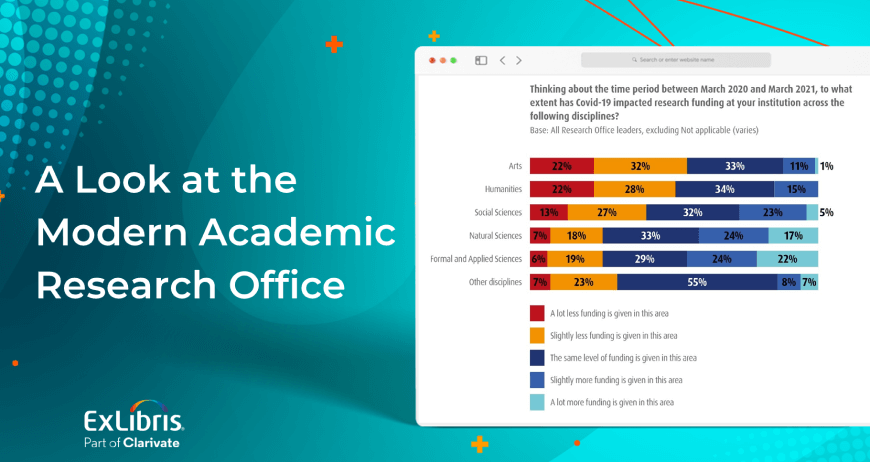This post was originally published on the ProQuest Blog
In 2015, ProQuest conducted a study on researchers’ use of news resources. This is the third in a five-part series focused on the study results and use of news resources in research.
Context is an essential component in research. Researchers need up-to-date information to stay well-informed of issues and events. Current news helps researchers assess the extent to which their research topics are relevant or on point with trends. In addition, they typically also need to demonstrate the relevance of their studies by referencing matters that concern the wider public. News content is an important gateway, helping researchers’ bridge theory with practice.
The news offers researchers a window on society – real concerns, opinions, and debates – to help them evaluate research topics. Moreover, by assessing a variety of news sources from multiple publishers and mediums, researchers can evaluate and respond to how a particular topic is being represented. This is useful in establishing bias in reporting and conducting a critical analysis of sources.
Historical news digital archives are an important resource for researchers. Apart from the convenience offered by digital access, researchers have the ability to view actual articles as they appear in the news source. This helps them get a sense of the time a story was written, the relative importance of an article at the time of publication, the relevant terminology, and type of news article, such as an editorial, advertisement, image or cartoon.
When looking for topical information to support their research, researchers can pick up minute details in news articles that may be left out in subsequent publications. The news is also an excellent source of data for triangulating information to come up with the most credible or reliable findings.
Research that does not connect to real life issues is at risk of becoming obscure and underutilized. Researchers, therefore, have an important role to play in educating other professionals and the public by linking theory and real world events. News stories offer the opportunity to connect ideas and issues, not only locally but also globally. Indeed, a ProQuest study on usage trends demonstrated that researchers are increasingly relying on international news sources to explore topics, conduct comparative analyses, and expand the scope of their study areas.
In an assessment of newspaper usage preferences across a sample of ProQuest users, contemporary news (from the 1980s-forward) was found to be more popular with academic researchers, while public library and government researchers were seeking information mostly from historical periodicals. What the overall study revealed is that researchers have a desire to compare specific events, people and places through several viewpoints. An added advantage is the ability to track a story over time by cross-searching current issues with archival content from ProQuest Historical Newspapers.
News sources are an important center-point in learning about and understanding the world around us. They help researchers gain global and contextual perspectives for their work and, in turn, this helps them connect with readers by tying research to current events.
Next week, read more on ProQuest’s study of researchers’ use of news sources.
Source: ProQuest News user surveys, 2015
Follow @ExLibrisGroup
You might also be interested in

Pivot
Research
May 06, 2025 |
1 min read
Searching for Research Funding: A Look at the Data

Primo
Artificial Intelligence
Higher Education
Research
September 23, 2024 |
4 min read
Elevate User Engagement with Advanced Analytics: Ex Libris Primo Partners with Mixpanel

Artificial Intelligence
Higher Education
Research
September 19, 2024 |
1 min read
The Clarivate Pulse of the Library 2024 report is now available!
Great library experiences start with software
Download whitepaper

Alma
Artificial Intelligence
Higher Education
Open Platform
Research
August 21, 2024 |
4 min read
Artificial Intelligence Blog Series: Introducing the AI Metadata Assistant in the Alma Metadata Editor

Artificial Intelligence
Higher Education
Open Platform
Research
August 02, 2024 |
4 min read
Artificial Intelligence Blog Series: The Ex Libris Open Library Platform

Primo
Artificial Intelligence
Higher Education
Research
June 19, 2024 |
4 min read
Artificial Intelligence Blog Series: Meet Primo Research Assistant

Artificial Intelligence
Higher Education
Librarianship
Research
Teaching and Learning
April 06, 2024 |
2 min read
Ex Libris Welcomes Dr. Safiya Noble for an online talk about DEI, Technology and Libraries

Esploro
Research
February 10, 2022 |
8 min read
A Look at the Modern Academic Research Office

